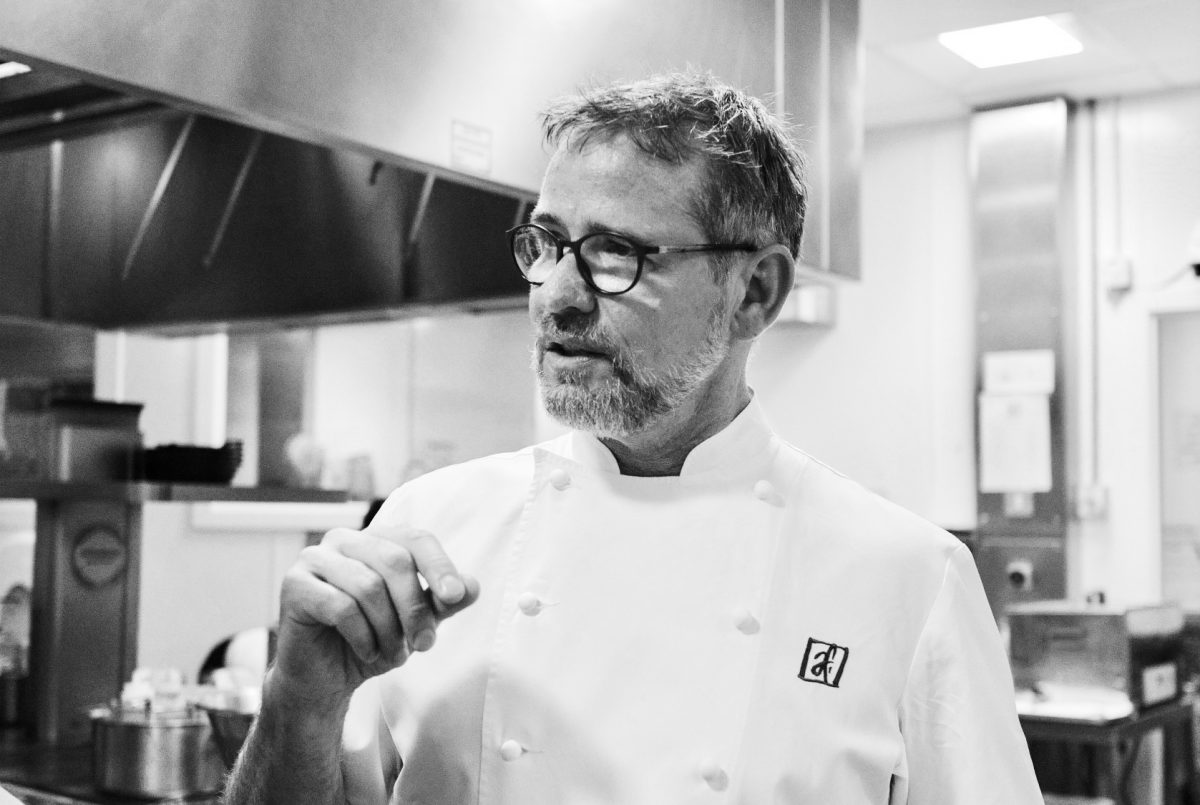
In memory of Andrew Fairlie.
January 22, 2019, Michelin-starred chef Andrew Fairlie has died following a long illness. Last summer we met for an interview. I was deeply moved by the story of this man.
Read the original version of the interview from September 1, 2018:
From washing dishes to Michelin stars. Andrew Fairlie’s life story sounds almost incredible: he has come from modest circumstances to run Scotland’s only restaurant with two Michelin stars. Some foodies say it’s the best in Britain.
Although he might have had plenty reasons to take off, he never forgot his roots. Fairlie now lives and works once again in the place where he grew up – his multi-award-winning restaurant can be found in the venerable Gleneagles Hotel in the Scottish county of Perthshire – and he has great difficulty recommending his clientèle a wine costing £2,000 as he finds that kind of price excessive.
Modesty and gratitude are what matter to him, not least because he is still able to cook at the top level despite considerable health issues following the diagnosis of a brain tumor.
Anna Maier: You have just returned from a holiday in France. The staff told me that you look totally relaxed. Are you?
Andrew Fairlie: Yes, I am. It was very peaceful. I do have some health issues – and you will probably understand this more than most –, but even if they don’t really interrupt my daily routine, it is important for me to sometimes take a time-out.
It was amazing going away for a three-week family holiday in the sun – which you don’t get often in Scotland. Ironically, we’ve had three weeks of brilliant weather.
But yes, it was great. Some great restaurants, some quality time with the family. I’ve got, kind of, two – I’ve got a wife and second wife. And my eldest daughter just had a little child, so there’s a 19-month-old granddaughter, as well.
Congratulations!
Thank you. It was great to get the whole family together. Three generations under one roof.
What does Andrew Fairlie do on vacations?
Well, we always hire a villa that’s big enough for everybody. I love cooking in the south of France, because the ingredients there are brilliant. You don’t have to spend hours in the kitchen, but we make salads, we barbecue, visit markets. Food always has to play a part in any vacation that we ever go on. I read a lot and try to relax as much as I can, walk as much as I can, just spend time with the family.
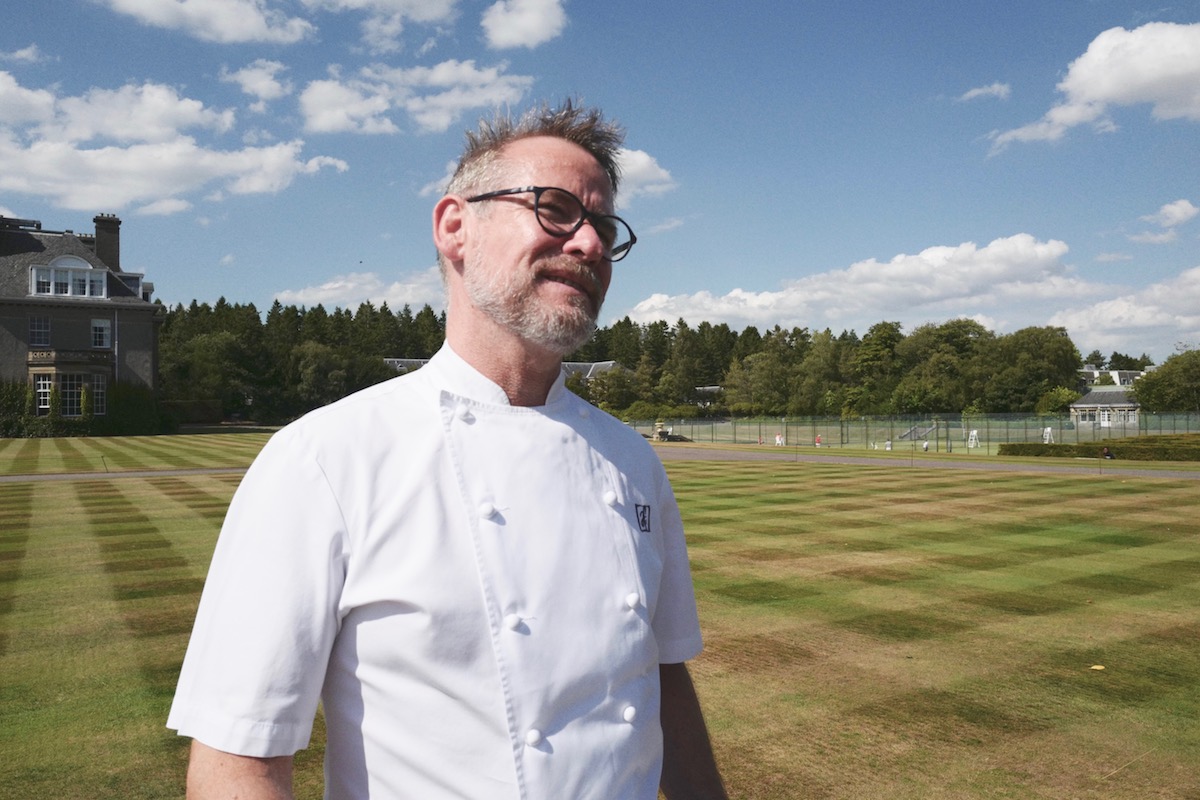 “Everything has to be right. My family probably think I’m a little bit uptight.”
“Everything has to be right. My family probably think I’m a little bit uptight.”
Is it different when you cook for your family, than when you cook for clients?
It’s a completely different style. But I have the same discipline. I think my family sometimes get frustrated with me: if we’re having a tomato salad, the tomatoes still have to be cut evenly, I’m a bit anal like that. Even in the house. In terms of my kitchen. The home has to be immaculate, everything has ist place. Aspects of my work life, I do take into my personal life. In terms of food and cooking and how we eat.
So it’s great going to the market – they love coming to the market with me, but I’ll spending ten minutes trying to choose a fish. And then once it comes to cooking it, the marinade has to be right, and they’re just saying: “Dad, just put it on the barbecue and eat it.”
You know, everything has to be right. So they probably think I’m a little bit uptight. But the discipline I have at work, I take back home.
Do you always have this professional attitude when it comes to dining? Is there some kind of research you are doing whenever you eat in a restaurant?
It depends on what I’m eating. I can go out with my family and have a pizza, and who am I to judge a pizza? As long as the pizza is good, I can sit down and relax.
As long as the tomatoes are in perfect order? (laughs)
If it’s seasoned properly and doesn’t use awful produce, I am satisfied. But I don’t go to every restaurant to judge. I can go out and eat with my family and relax.
But there are lots of restaurants I go to purely for research. Maybe three or four of the team will go to Paris for three days, basically just to have a benchmark of what we’re doing. We’re critical of ourselves more than anything. We’re not going to steal ideas. We’re just going to see: do they do this better than us?
So you sometimes have to leave your daily routine to gain some ideas? Honestly: how many veggies and spices does your personal gardener, Jo Campbell, have to plant in your secret garden when you return from your travels? Do you have new ideas in mind?
Yes, I have. But it doesn’t all come from me, because Jo, the gardener, will go travelling and bring seeds back that I have never seen before. She has a little bit of the garden where she’ll grow experimental stuff. At the moment, she’s trying to grow turmeric. She brought some turmeric back from India when she was there a couple of years ago.
Does it grow over here?
Yes, surprisingly well. I didn’t expect it to work for us, but it’s growing. She just spent a couple of weeks in North Carolina, so she comes back and tries to introduce new seeds and new plants. So it comes from everyone. Myself, I love Southeast Asia and some of the flavours of Southeast Asia. But travel is huge.
“I only decide on something if it might excite me.”
Did I get you right: you create your ideas after she plants something?
No. She’ll plant something that we might never have seen before and she’ll introduce it, say: What do you think of this? Do you want me to grow some? I taste it and I may say: “I can’t really see a place for it.” Or: “Yeah, it’s brilliant. From where can we get it?” And she’ll say: “From me. You can get it in six weeks.” The beauty of working with a grower who works directly for you.
I heard your brother’s farm has also been involved.
Yeah, he doesn’t do that anymore. It was a sharehold. So he has stopped farming now. A lot of the contacts – initially, when we first opened, they all came through my brother. Believe it or not, we are in the most fertile area of Scotland. But it was very difficult to get access to good producers.
For you as well? Why?
Because they just weren’t used to it. They would grow for the market. They would grow in volume and sell it on. There were some cottage growers, but they had never dealt with chefs directly. And a lot of chefs have never dealt with small producers, artisanal producers. It is very difficult to join the both of them up.
Jim, my brother, he knew the people who were growing asparagus, but they couldn’t find a route to market. Somebody who had organic chickens or ducks might only have had thirty ducks to sell, and they couldn’t sell it to shops or supermarkets. So they wanted to sell it directly to chefs. Jim was a very good link for me.
Jim is your brother?
Yes. He started the very first farmers‘ market, would you believe, in Perth. I think once the small producers understood that people were interested in food, it was an easy thing to set up. And then it just took off: all the farmers‘ markets really stemmed from the farmers‘ market in Perth.
But ironically, coming from France, where you can go to the market and get the most amazing produce, coming back to Scotland… it was tough. Trying to get great chicken. Unbelievably, again, for Scotland: great beef. You really had to work hard and it took a while…
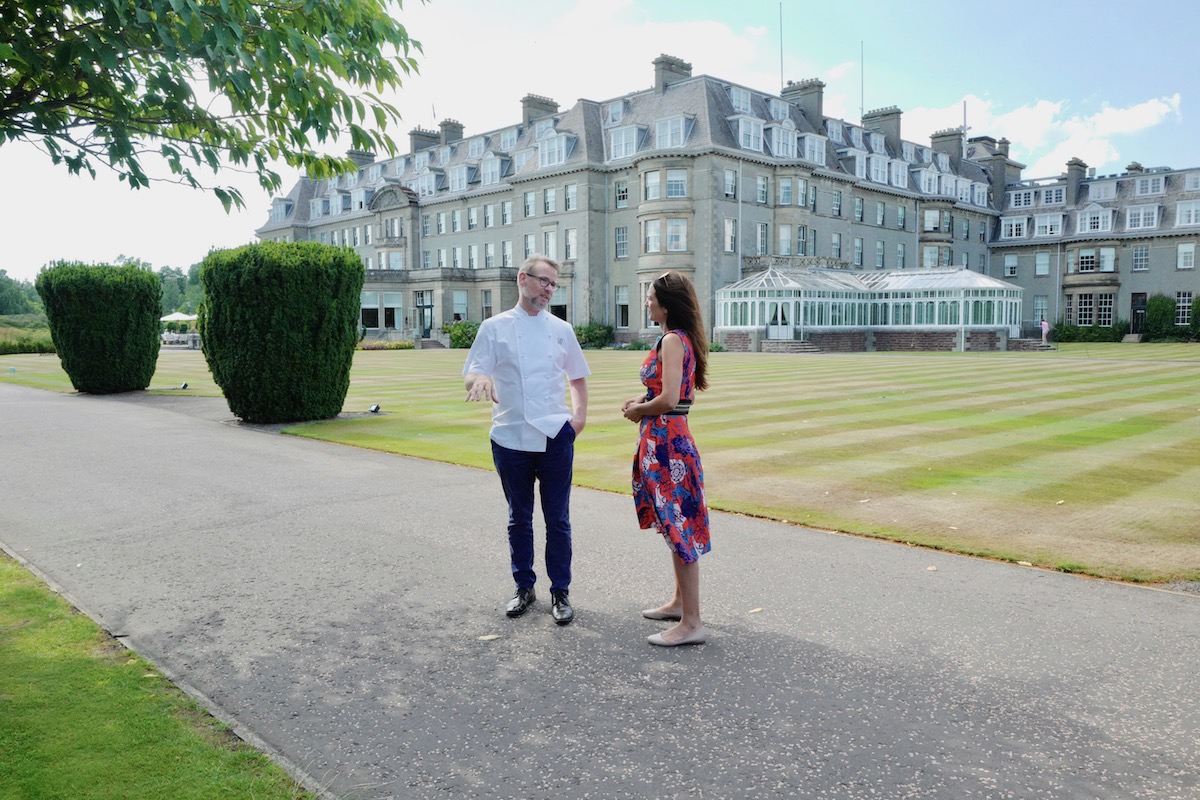
Andrew Fairlie talks to Anna Maier in front of the Gleneagles hotel, where his restaurant is located.
“We came from a working-class background. My mother worked in a shoe shop, my father was a teacher.”
You have been a chef for 35 years, but you have been cooking even longer. I read that you started in your very childhood. Cooking for the whole family played a very important role for you. How come?
We came from a very, very working-class background. Five kids and my mother worked in a shoe shop, my father was a teacher. My father was home first, so it was his responsibility to put food on the table. Food, for us, has always been a huge thing. We had to cook – my father and myself or my sister and myself. But I was always in charge of.
Have you been the eldest?
No, I’ve got an older sister, then myself. Then two little brothers and a young sister. But it was the sitting down – we weren’t fussy eaters, but nowadays, it’s a nightmare. At that time, we had potatoes every night, we ate a very simple diet, but it was always fresh food. We religiously, every night, sat down at the table.
So I think my first love was eating – well, I was fourteen years old and never considered a career in cooking. A career as a chef was not in my head. I think the first thing, for me, was that I loved food. I loved the ceremony of sitting down with family and chatting, arguing, laughing, fighting and all the rest that goes with it.
What were you talking about?
Politics, mainly.
Mainly?
Yep. My father was a politician. So he was very heavily involved in politics at the time. As with any family, we’re all very, very different. But I think we were all interested in history and politics, so that used to be a topic. As we were growing up, he was more and more involved in it.
“From a very early age, I was very independent. Stubborn and headstrong.”
How would your father characterise you?
Erm … I think from very early on, I was very independent. With five kids, we all had to go and earn money. So we picked berries or picked potatoes. I knew the value of money when I was very young. When I wanted a new school uniform or we all wanted new school uniforms, we had to go pick berries in the summer.
We had a great work ethic, but I think from a very early age, my parents saw me as very independent. I’d go out getting jobs on a Saturday, I’d start washing dishes in a hotel. Erm… characterise me. Very stubborn, very headstrong.
A rebel.
Not really a rebel as such. I wasn’t an agitator, I didn’t get into a fight with my brother every single day. I’d more be out for the day with the dog and a couple of friends. I’d come back at half past five, five o’clock at night. So if you asked my dad that same question, he’d say: Andrew always did his own thing with his friends. From a very early age, I’d look after myself, basically. Financially and all.
You seem to be pretty much down-to-earth. Is this the reason why you are back here where you grew up? Because of the roots your parents gave you?
I think so. I didn’t end up in Gleneagles by accident, I suppose. It was an opportunity I saw that was a very easy one to accept – I suppose because it was Gleneagles, it was Perthshire. I spent the first fifteen years of my life here, I’ve always loved Perthshire. I’ve got very close family, so it was great to come back and have my parents eight miles from here.
Are they still alive?
Yes, they’re still alive. They stay in Crieff.
I remember when I first won a scholarship, I was twenty, and someone had asked me: what are you going to do, what are your ambitions? I always said that I want to come back and live in Scotland, but I want to have the first three-star Michelin restaurant in Scotland. And that was at a very young age.
So I knew I’d always come back to Scotland. I took advantage of the fact that I could travel and work and live in other places, but I always knew I would end up back here.
I didn’t know I would end up in Gleneagles – it’s funny, because I used to come by here. When I was an apprentice, I’d come and work here on my days off. When it was a seasonal hotel. I’d volunteer for days, I used to do grand buffets.
I remember how impressed I was as a very young child, driving up the hotel and driving round the roundabout there, and seeing Gleneagles Hotel for the first time as a young child… (makes an impressed noise)
Now, thirty years later I ended up back here with a restaurant – and it’s my own!
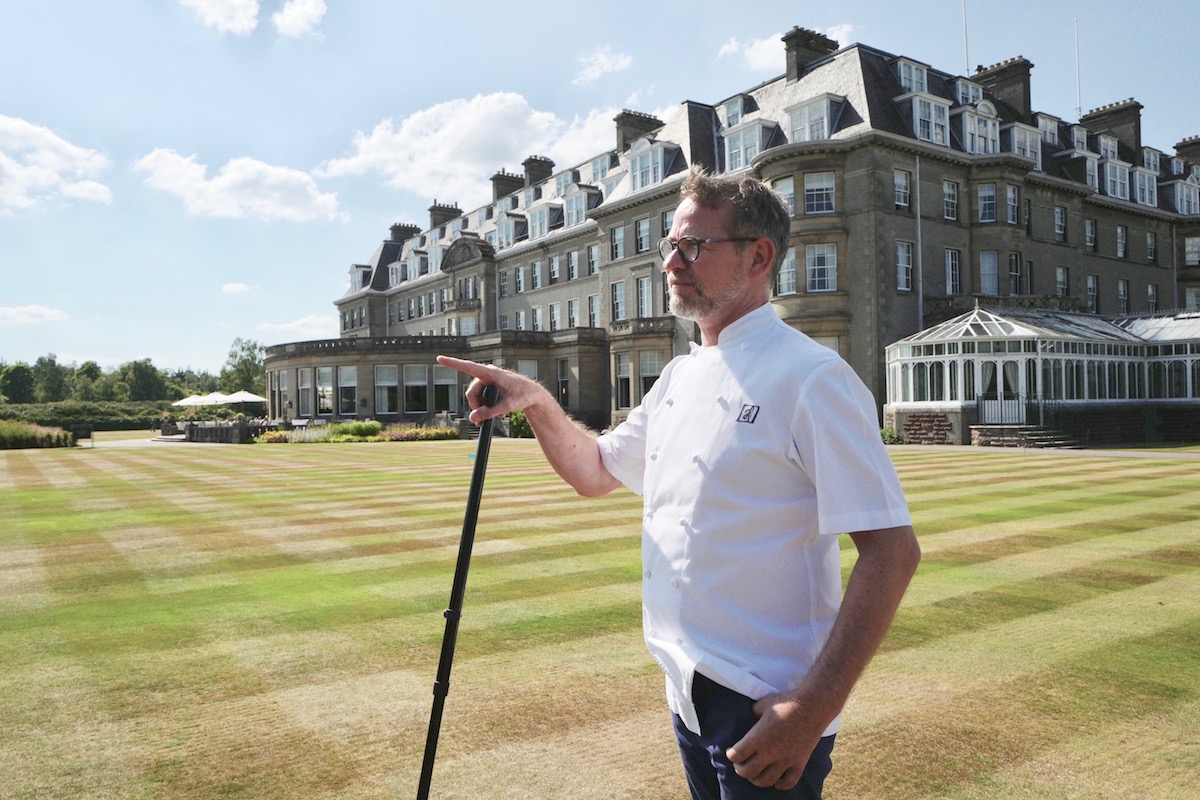 “I had a kind of stubborn steeliness about me. I wanted to be a respected chef.”
“I had a kind of stubborn steeliness about me. I wanted to be a respected chef.”
If young Andrew were sitting in front of me and I told him: “Listen, some years later, you’re gonna be one of the top chefs in Scotland. Some people say this is the best restaurant in all the UK.” What would your reaction be?
I’d think you’re mad. If I was Andrew as a young boy, 19 years old, driving up Gleneagles – and had you telling me that, fast-forward 35 years, “you’re gonna have a restaurant in there and you’re gonna be a well-known chef” … it’s the stuff of dreams, really. I would never have believed it. Outwardly, I was always very shy. But I had a kind of stubborn steeliness about me. If I was going to be a chef, I was going to be a good chef.
You always wanted to be the best in what you’re doing?
Yes. Or I wouldn’t do it. But I did have that kind of confidence. Talking to myself, seeing Escoffier, when I was growing up, as this godlike figure who was famous and everyone respected him for being a great chef… I didn’t want to be Escoffier, but what I wanted to be was a respected chef. A respected professional. And a tradesperson, with my hands. I’m still hanging on to my working-class work ethic, and I just wanted to be the best at it.
You told me that you grew up over here as a working-class child. Is this the reason you sometimes hestitate about going on holidays, renting a villa – I read it in an article –, wondering: “Shall I really spend that much money?” Is this also because of your roots? I don’t think that you ever forget how you grew up.
I don’t think so either. I said to you earlier: I totally understand the value of money.
Still.
Still. Sometimes, it embarrasses me.
“I find it very hard to sell someone a bottle of wine for £2000.”
How?
Well, for example, sitting in Gleneagles Hotel, a five-star hotel, and we’ve just finished the management meeting. We’re looking at what people spent last night.
Some people very comfortably might say: “We want a really nice bottle of wine.” It’s happened very recently: I would find it very hard to sell someone a bottle of wine for £2000. Because for me, I couldn’t justify spending £2000. Some people do, and they don’t give it a second thought, but I have people working in the restaurant who would say: “I will never be able to afford such an expensive wine.”
I really find that very hard to do: point to a wine list and ask them to spend £2000, because I wouldn’t do it. So there is a little bit of… – I don’t know how to phrase it, really.
May I explain it with another example: This year, I spent more on a holiday than I’ve ever done before. If I told my parents how much I spent on the villa, they would say: “Really? What do you get for that much money?” They wouldn’t understand it, it wouldn’t compute.
Why do you do that?
Because of my granddaughter, because I just wanted to have the whole family together. My daughter is getting married next year, it’s probably the last time that we’ll have everybody together – all my girls, and my youngest daughter’s fiancé. They’ll be married next year and they’ll be gone. It was important to me to just have everyone together this year. I just wanted to do it.
And I wanted to show them that this is achievable if you work hard. And I try very, very hard, so they understand the value of money. They understand the work ethic they have to have. They know my background, but I can see how much they responded to it, how much they appreciated it – that, for me, this year, was lovely.
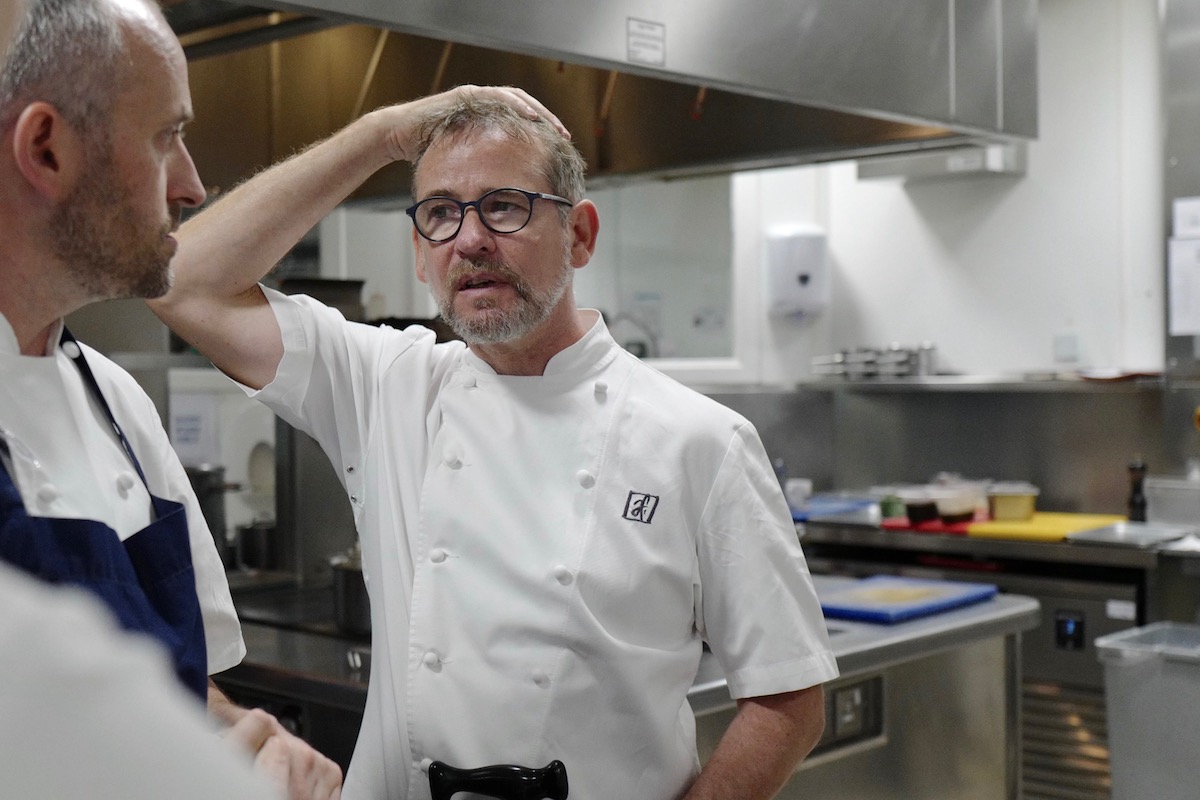 “If everyone is an expert, then what the hell is an expert?”
“If everyone is an expert, then what the hell is an expert?”
Everything you do seems to be well-considered. Especially when it comes to food and its quality. Nowadays, everybody is calling themselves a food blogger, there are lots of food blogs out there, Veganism is a mega trend. Is this destroying the market, everybody being some kind of an expert in food and cooking? Or is it more like some entertainment show that will just pass by?
It will pass. Some things, obviously, are just nonsense, to be honest. Being in the kitchen I’m sometimes checking Instagram. As the plates go down, I’m watching someone commenting on their meal as I’m in the kitchen. It’s so instant and boring. It’s taking the enjoyment out of their experience of going to a restaurant. I take the whole thing with a pinch of salt, to be perfectly honest. If everyone is an expert, what the hell is an expert? I think it will pass. I think, a lot of these blogs, I can read, are quite dangerous and unhealthy.
But you obviously do read those blogs.
Do I? There’s one or two I follow. Elizabeth Auerbach, I have huge respect for. She’s very knowledgeable and I respect her opinion on it.
There’s Andy Hayler, whom I read, but 90% of the time, I don’t agree. I’ve eaten in a lot of the same places that he has eaten and I have had a completely different experience from his, so that’s interesting: I like to compare when someone has eaten in a restaurant, and I have eaten there, and their experience is completely different. Is it justified?
Blogs and that, no, I can’t remember the last time I read TripAdvisor, I can’t remember… I don’t think I’ve changed anything in the way that we do business because of a blog or a review or whatever.
There are a lot of discussions about the pressure on the chefs, to find new ways of creating new dishes for very demanding clients, for gaining another Michelin star. How do you deal with that pressure? Do you feel that pressure as well?
Yeah, there’s a pressure in work. It’s very, very hard work. The pressure to remain relevant, I find that pressure is good. It is a healthy pressure for me. We need to keep looking at how we are developing, look at our drinks menu, are we using the garden properly?
But I did go through a period – probably around 6, 7 years ago in the UK –, where molecular gastronomy was there and it was being written about every week. Of course, it was a fashion. It’s easy to look back now and think that. We were taken in by it. People stopped writing about us, reviewers weren’t coming to have a look at the restaurant because they were going to all these other restaurants. Liquid nitrogen was the big thing, people were serving food on everything from the whole table to glass to wood.
I had a couple of young chefs in the kitchen at the time who said: “Chef, we need to be doing this. Have you seen what they’ve been doing over in Spain? And in Chile, they’re doing this!” I think that was a dangerous thing because I was sucked into it by the press and my chefs, who were saying: “If we want to be relevant, we need to be doing this as well.” I kind of went off-piste for about three, four months and I hated it.
Luckily, I managed to pull the whole thing back and say: no. I am absolutely happy, that people are now looking for – what, in my opinion, people have always wanted – brilliant, simple food. If you want theatre, that’s fine, we can add a little bit of theatre, but we’re not following every single trend.
“I don’t want to turn a potato into a stone. That’s not relevant for me.”
Where’s your limit?
Now?
Yeah. When would you say: “This is enough!”?
I don’t think we’ve got anything on the menu now in terms of theatre. I’m now very cynical about all of that. All I want from my kitchen and my front of house is to source brilliant food, present it in such a way that it is: the simpler, the better, for me.
I keep saying to the guys in the kitchen: “Do we need this, do we need that, why is that there?” And I strip everything back as much as I can. Probably more in a Japanese sense: If something has no relevance, I don’t put it there. If it’s confusing, I don’t know why it’s there. And I don’t know why people would eat.
I don’t think that we need any tricks. I don’t want to turn a potato into a stone. It’s very clever, very entertaining for the chef. But just think about the process: I’m going to ask you to paint a potato, cook it three times at three different temperatures and then paint the potato in sugar so it looks exactly like a pebble.
Somebody is going to eat it, and it’s still a potato but it doesn’t look like one – I honestly wasted three hours of your life to produce that. It’s just not relevant to me. It’s not relevant to my personality. It’s not relevant to how we see it at the restaurant.
You have been successful your whole life, since you started cooking. At the age of twenty you won your first prize. If a young man or woman is starting out cooking, what would be your best advice to this person – not to take everything too personal, to deal with the pressure, go their own way?
It’s absolutely crucial for a young chef coming into the industry now to forget the instant fame. I came to work in a kitchen because I genuinely loved food, I loved the atmosphere of the kitchen, peeling two cases of oranges was not boring for me. I just loved it.
You need to get used to the fact that it is repetitive. At that age, if you’re a carpenter or a mechanic or a chef or whatever – anywhere you’re working with your hands –, you just have to get used to the fact that repetitiveness brings perfection.
So you’re never bored with cooking?
No. Our service doesn’t look too different from one night to the next. Obviously, there are things that are going to come in, dietary things. But it’s the consistency of it that’s the hardest part of it. And I never get bored trying to achieve that consistency.
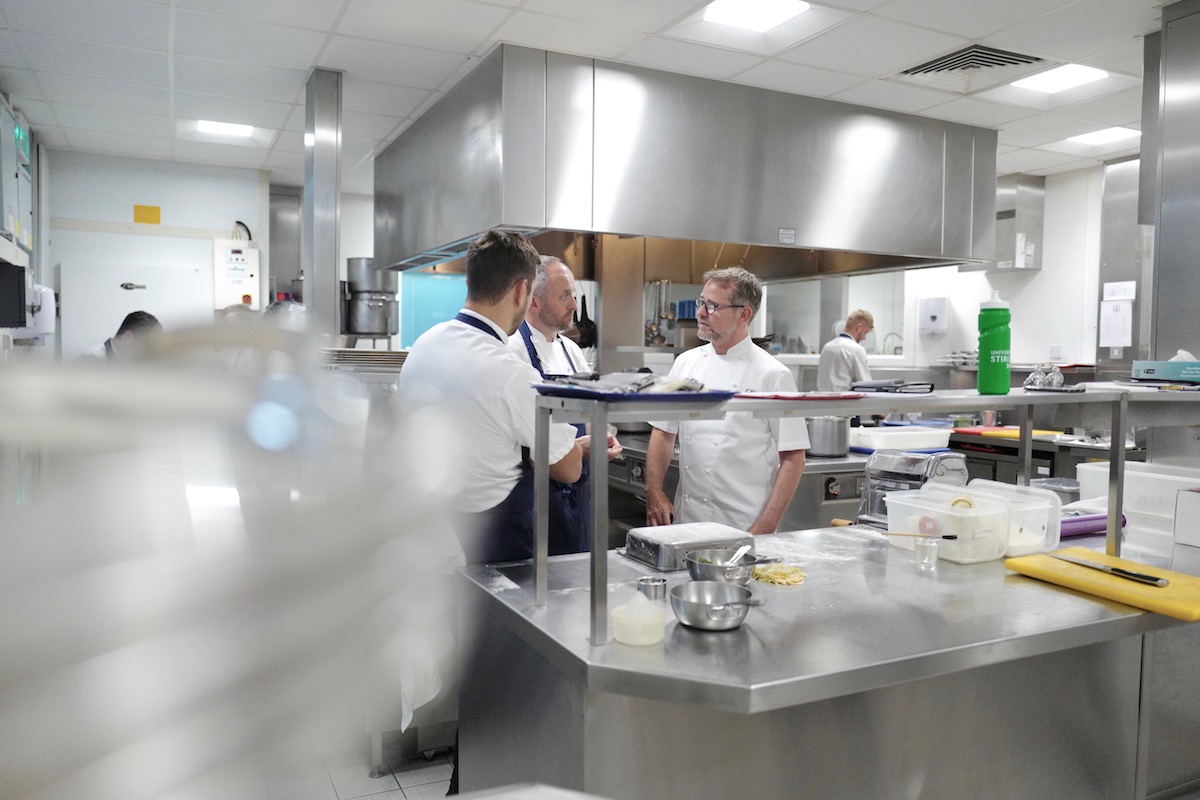 “If your soul is not in it, then people can taste that.”
“If your soul is not in it, then people can taste that.”
Can you try to explain the fascination of cooking that you have?
I think it’s two things. People sometimes ask me – my wife asks me – what you don’t actually get to see out front. It is the happiness that I’m trying to do and, I think, as a good chef, there’s a generosity of spirit.
I think that your character has to come through in your cooking. If your soul is not in it, then people can taste that.
I go into the garden, speak to someone who absolutely loves what she does, and then planting, harvesting that, bringing it into the kitchen, teaching young chefs how to respect what they’re doing. It’s the whole thing. It’s the whole journey. And then getting it to the whole place, sending it out, there is that kind of sense of … “ta-daa!” – and I’m happy. It makes me content.
I know it’s going to make, hopefully, fifty people in the restaurant happy, being surrounded by people who love what they do – this is a very important thing to me, as I have to surround myself with people who care about it as much as I do. Be it my restaurant manager, my wine waiter, my kitchen porter. I have to surround myself with passionate people.
But for sure, it’s some kind of a “thank you”, if you get a Michelin star or two. What would it be like if they took away the stars, or if a magazine wrote that the kitchen is not good anymore? What would this mean to you and your staff?
I would be devastated. I think chefs are quite fragile characters. We do take it very personally.
A horrible night for me could be: two people having a bad experience in the restaurant. My night is ruined. 48 people have had a great evening, but the two people are the ones I’m going to take home with me. And that deflates me. The next day, there’s the motivation that that must never happen again, it should never happen again.
We are quite fragile. People say that: “Ego is not something I associate with my character”. But that doesn’t mean you’re supposed to strip it back. You have to have an ego in order to follow the whole thing through. The pressure of it is immense.
I suppose, for me, when I first opened a restaurant, I wanted to open a two-star restaurant. I didn’t want to open a one-star restaurant. And I didn’t want this long journey.
Is this something you can wish for? “I want to open up a two-star restaurant”?
I suppose it’s an inner belief that you have in yourself. I’ve been cooking at one star, I can do that. I know what a three-star restaurant looks like. Can I open a two-star restaurant? Can I maintain it for the next five, six years? It was very, very, very hard in the beginning. But that was the benchmark I set myself.
Do you believe in positive thinking?
Yes. Absolutely. In everything.
“My mother is Irish, we had potatoes every single day of the week.”
Is there something on your menu card that has its roots in your childhood? People say that you will always like your favourite dish from your childhood, because there are some remarkable memories belonging to this dish. Is there something you always cook whose roots are in your childhood?
For me, summer is the evocative thing, because I always associate summer with berries. I used to go picking them in the field for money. So I suppose strawberries, raspberries are something where the smell, the taste always brings me back to my childhood – very happy memories.
I can’t point to anything on as our diet was very, very simple: potatoes. My mother is Irish, we had potatoes every single day of the week.
You still eat potatoes?
Yes, I do. I’m even an ambassador for a potato company. (laughs)
Really? (laughs)
Yeah. So, our diet was very simple. We very rarely had fish, we didn’t have pasta, we didn’t have rice. It was potatoes.
You’ve mentioned the health issues you have since the age of 41. Your life changed because you have been diagnosed with a brain tumour. How did you find out that there was something wrong?
I had two massive seizures.
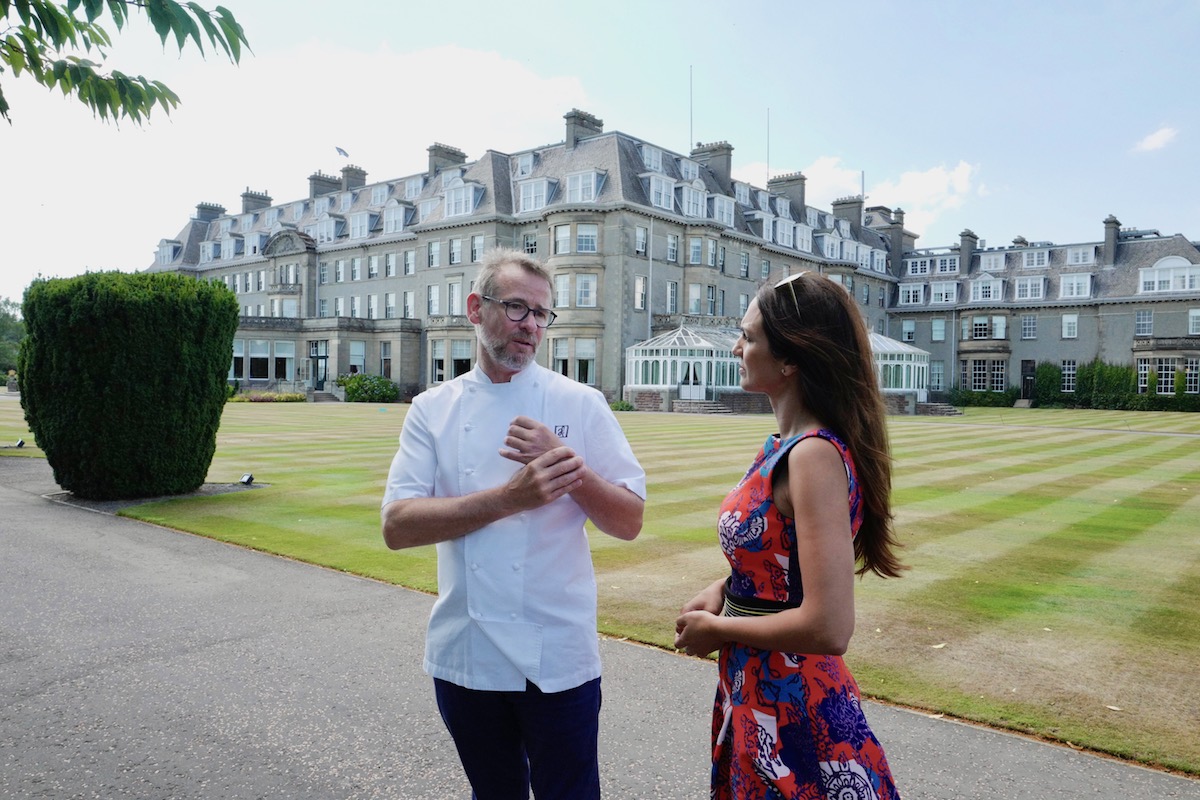 “It felt like somebody had taken an electric cord and stuck it into my left hand.”
“It felt like somebody had taken an electric cord and stuck it into my left hand.”
You’d never had that before?
No. I was on holiday in Vietnam with my girlfriend at the time. To be perfectly honest, I had never felt healthier. Before my second wife, I always used to go travelling in January. End of the year, I’d always be exhausted.
That particular year, I’d decided in the summer that I was going to start exercising, looking after myself, take more time off. I used to live in Glasgow and travel back and forth every single day, it was a slog. So I was saying halfway through the year that I was going to start looking after myself, before I went on holiday to Vietnam in January. Never felt fitter.
In the afternoon I was working out in the gym, went back to my hotel room and had a shower. I came out and, all of a sudden – I can barely describe it – it felt like somebody had taken an electric cord and stuck it into my left hand.
And what it was was just a massive seizure. When people say you see your life flashing before your eyes – I didn’t think you’d literally have that. But I had that sensation.
And it wasn’t a stroke, it was a seizure?
Seizure caused by a tumour.
Well, when I had the seizure in Vietnam, my girlfriend came in and I was on the floor. She called the doctor, and the Vietnamese doctor said it was dehydration: “You’ve had a seizure due to dehydration.” Which was perfectly feasible. It could have been.
Back in Scotland I went for a run, came back and my girlfriend saw me having the seizure this time. It was so violent that she took me into hospital, where they said that this was not normal, to have two seizures of that scale so close together. So I’ve been very, very lucky the whole way with it. The visiting professor whom I saw said: “I have an emergency appointment free tomorrow mid-day, you should go for it.” So I managed to get an emergency appointment for a scan.
I remember going back a week later to get the results, and he asked me how I was feeling. I said: “Absolutely fine. Everything’s great.” And then he just put the scan up on the board. And I could see it immediately. I had no idea what it was.
He said: “There’s this area here. I can’t diagnose it because I’m an epilepsy specialist. But I think you have a brain tumour. You need to see a specialist tomorrow morning in the hospital and he will confirm that or not.” And that’s what it was.
And then you just left the building with this diagnosis. How was that?
Strangely, but it was okay, somehow. Sometimes, you think back now to the shock that it was, but I didn’t really register that I have a brain tumour. I didn’t immediately think that it was a fatal thing. I had no idea. I just remember that I thought: “Oh my God, am I going to become an invalid? That was my biggest horror.”
“I was very stoical about my fate: It’s there, let’s just get on with it.”
Why?
Because everything that I love would be taken away from me. My job, everything. Having to rely on somebody else. The usual thing that most people would think.
I think my life was in a really good place at the time, and I didn’t wanted anything to change, that was my overriding fear.
I left the hospital, went to watch a movie, came home.
Right. And you never felt depressed or wondered: “Why me, why at this point?”
No. Never. I think I dealt with it, probably because of my character. Some people might think: “My God, how can you do that?” You know, we all deal with it differently. My wife, she would have dealed with it completely differently. I was just very stoical about it: it’s there, let’s just get on with it.
You just went on.
Yes.
How’s the recent situation? Do you still have seizures?
Yes. I have an issue with a brain tumour at the moment.
For the brain tumour, I have had four courses of chemotherapy over four years. I’ve had a full course of radiotherapy for six weeks. There is no more treatment open to me at the moment.
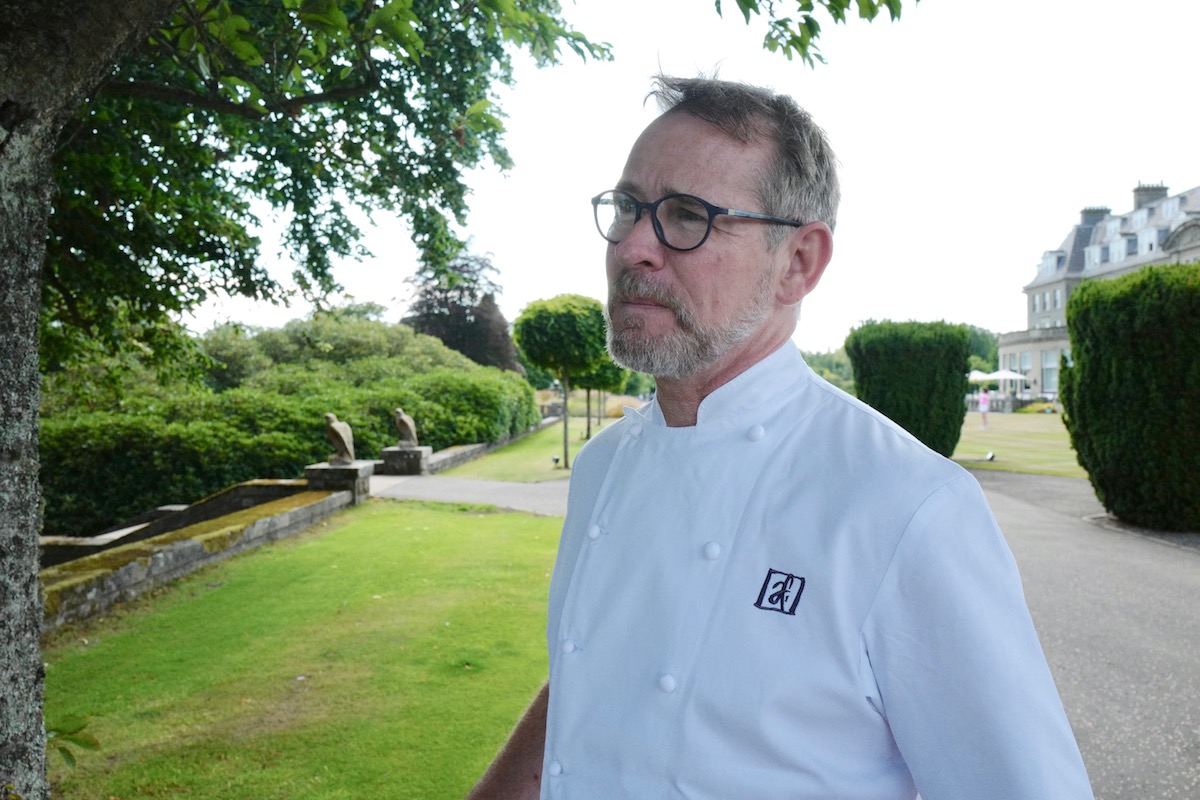 “I’ve had a lot more time than I should have had.”
“I’ve had a lot more time than I should have had.”
What does it mean?
I’ve been discharged from the hospital. I’m just relying on controlling the tumour at the moment. The tumour could grow. If it starts to grow any more, then it will be fatal. But I’ve always known that. Eventually, the tumour was going to kill me.
But I’ve had a lot more time than I should have had. I was lucky in that sense. It is kind of getting to a point now where I’m very limited in terms of what is open to me now.
How does this situation affects your life?
I suppose, now, I take it a lot more seriously. To be perfectly honest, I never considered the tumour.
I would have seizures, I’ve had seizures in the kitchen. All my staff were used to me having seizures. I would just go under the dry store and have a seizure and come back and then finish service.
I would just have to tap Stevie (McLaughlin), my head chef, on the arm. He’d say: “Okay, chef, no problem.” And I would go and have a seizure. But at various point throughout that whole ten years, sometimes, I had forty seizures a day.
Forty? You have had this?
Yes. Sometimes, I would have no seizures for three weeks. Just the various stages of the tumour changing.
How do you deal with this situation?
You get used to living with it. If you go on a train, for example. Because it is my left-hand side, I always go for a seat where my left arm is against the window and I know where the toilets are.
If I go to a restaurant, I’m very aware of my surroundings. When I was going through lots of seizures then, that did come into play. I was very aware of it.
It’s more frightening now, because I know that I can’t just go and ask for some chemotherapy and stop it. It never frightened me. I didn’t really change me. I once was halfway through a course of chemotherapy and I’d committed to climbing Kilimanjaro for charity.
Yes, I read that. Why did you do that?
Because I’d committed to it.
Stubbornness?
Yes. Stubbornness. And it gave me an excuse to, again, forget about it. Get myself fit. Go climb a mountain. Horrible for everybody else. But for myself, I said I was going to do it, and I was going to do it. It gave me an excuse to get into training.
How did it go?
Yeah, I did it. It was very, very tough – I would never do it again.
At certain points, on the mountain, with altitude sickness and things, I worried: what if I do have a seizure? There were one or two people I was climbing with, and they knew to keep an eye out for me. So I did it, came back. I’m very glad that I did do it, it’s an experience that I have ticked off.
“Twenty years ago, a brain tumour was a death sentence.”
You donate money for research into tumours. From every bill, you deduct a small amount. Do you hope that the research or the progress they are making in developing new therapies will be faster? Is there a hope?
Yes. I have been in contact with Professor Anthony Chalmers, who is leading at this research project in Glasgow. Already, with the money we have given them, he can pinpoint exactly: this has given us another member of staff, this is what we’re doing.
I can see the work that they’re doing. They’re very hopeful about the progress they’re making in terms of a new drug and technology that can be taken with radiotherapy. Such a fascinating subject.
But treatment for brain tumours has probably been the most underfunded one. I think it is too complicated to understand for most people. A brain tumour twenty years ago was a death sentence.
Why didn’t they remove the whole tumour?
Because of the setting. If you took the whole lot out, my motor skills would be affected. I would be incapacitated.
My neurosurgeon, a greek called Vakis, most probably one of the best of his kind in Europe, was very, very precise. I asked: “What is it going to be, what’s the prognosis?” He said: “This is what I’m going to do. Here’s the drawing. Your left hand… if you throw a cricket ball straight with your left hand now – you’re not going to be able to throw as far or as straight when I’m finished.”
And that was exactly it. My left hand was affected, but that was it. With another doctor or somebody who was not as experienced, I’m pretty certain I would’ve come out much less able-bodied than if it was with Vakis.
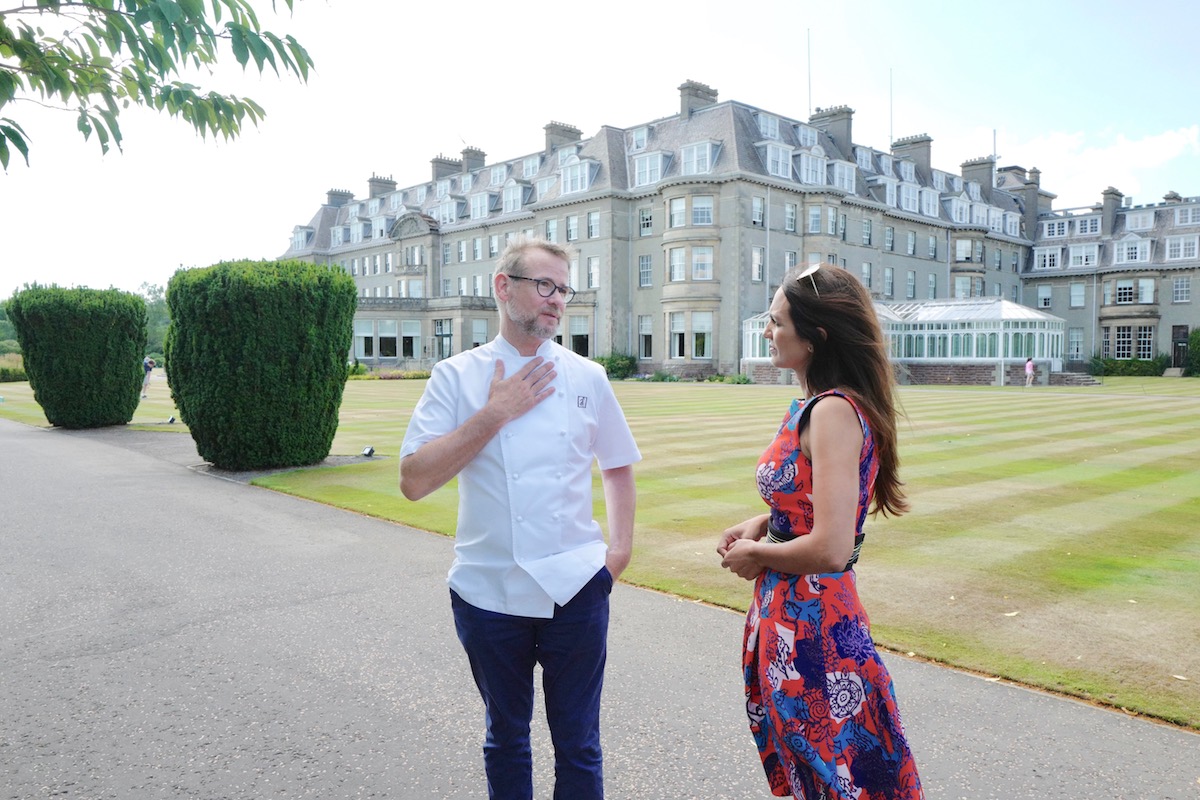 “You shouldn’t put off the things you’ve planned.”
“You shouldn’t put off the things you’ve planned.”
Do you think that you live more in the moment – which quite a lot of people claim they’re doing but they’re not – since living with your health issues?
More now, I think. Before, I was never that conscious of what I have. My work life has always been very dominant in my life. But I love it. So there’s never been real hardship coming to work and being involved in work and the people I surround myself with. I’ve always enjoyed that.
Nowadays, I truly appreciate that living in the moment. Just having all my family around – I’m more conscious of that. Before, I might have said: “It’s just the four of us going away this year, we’ll do something next year.” Now, this year, I specifically wanted to do family-holidays.
I said: “Guys, you’re all coming on holiday.” One of my daughters said: “I can’t get the time off.” And I answered: “I don’t care, you’ll get the time off.” I don’t think that you should wait too long with the plans that you have on your bucket list.
Is there anything missing?
Genuinely, no. I’ve given it a lot of thought: I’ve worked on all continents, I’ve lived in some amazing places, met some amazing people, had some great experiences. There was a specific restaurant in the south of France that I had wanted to visit this year, which I did. It was a great disappointment, but anyway. (laughs)
I not going to ask you for the name. (laughs)
The most important: I’ve got an amazing family. I’ve got some very close friends – a small number of proper friends, they are very important for me.
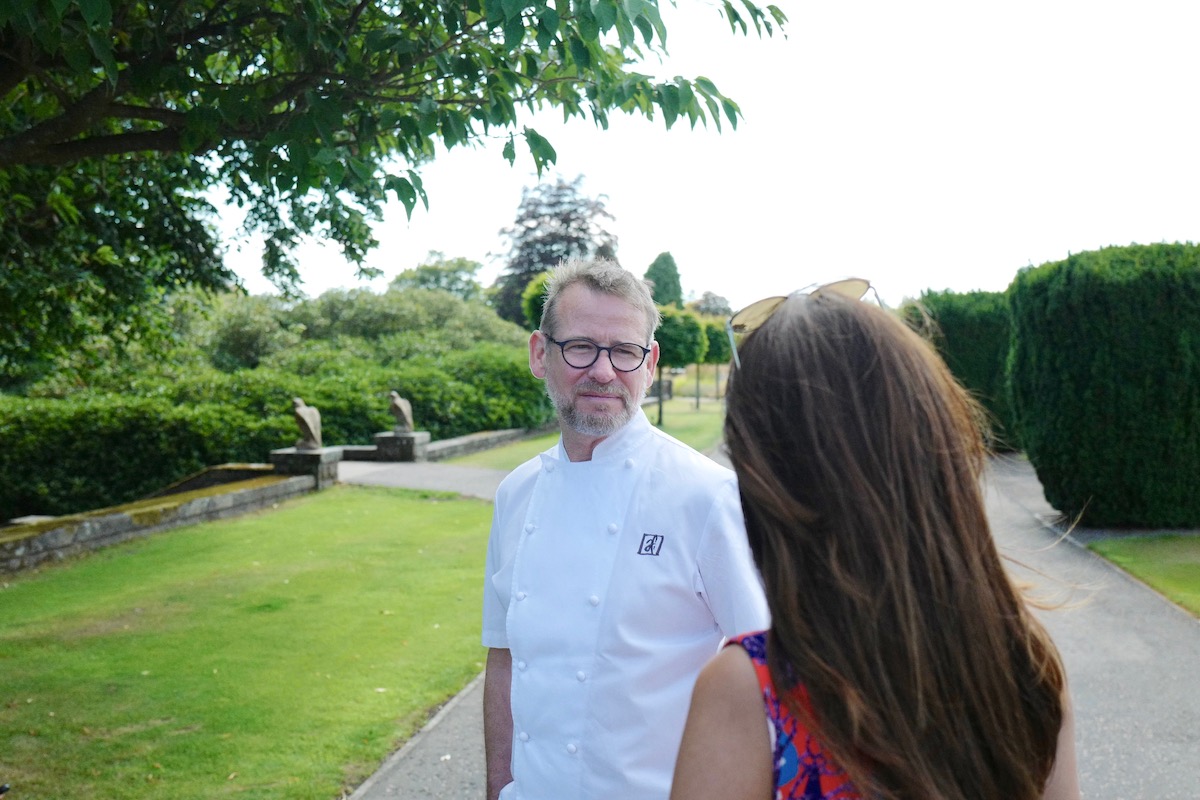 “There are plenty of things in my life – even if it sounds banal and boring – that make me happy.”
“There are plenty of things in my life – even if it sounds banal and boring – that make me happy.”
“There are plenty of things in my life – even if it sounds banal and boring – that make me happy.”
What were the happiest moments that you have had recently?
Happiest… I think, probably holidays. The last holiday I had. My family make me laugh. My wife makes me laugh. She’s very funny. My children make me laugh. They’re hysterical. Times spent with people make me happy. Times around the table with friends.
A lot of my life, I have to say – even if it sounds banal and boring – makes me happy: food and wine and laughing and having fun with people.
Sometimes, I love being on my own. I have a room in the house where I watch football on my own.
What do you do in there besides watching football?
Read. I’ll read if I just want some time out. The kids know and Kate knows.
So if you close that door, everybody knows: do not disturb.
Yes. My kind of man cave, if you like. I do enjoy time and I need to have time to myself.
How much time? How many hours do you need to yourself?
Probably at some point every day. If I have an hour on my own every day, it clears my head. But I can’t get it here. As soon as I come in here, it’s just like most people’s working environment. A coffee break or a lunch break is not going to do. I need to come in and watch football or something.
Football is a huge passion of mine. I have a football team that I follow. The World Cup – on holiday, I could watch wall-to-wall football. All these things makes me feel happy.
Text and images: Anna Maier
Info and reservations: Andrew Fairlie, The Restaurant


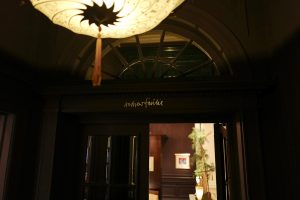

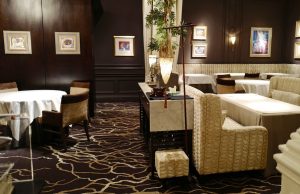
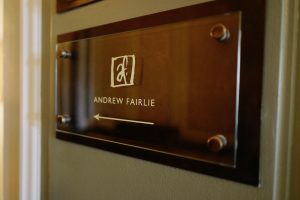
Newsletter
Subscribe to our newsletter and you'll get notified every time a new article is online.


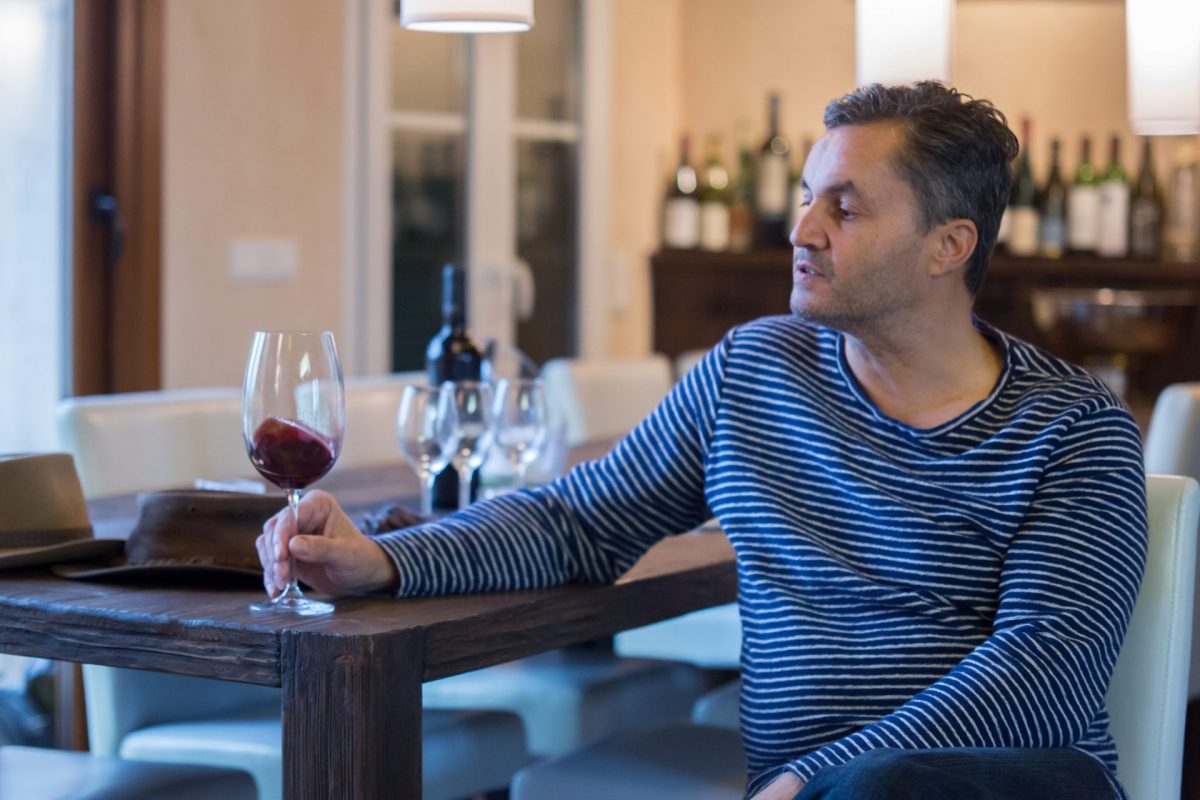
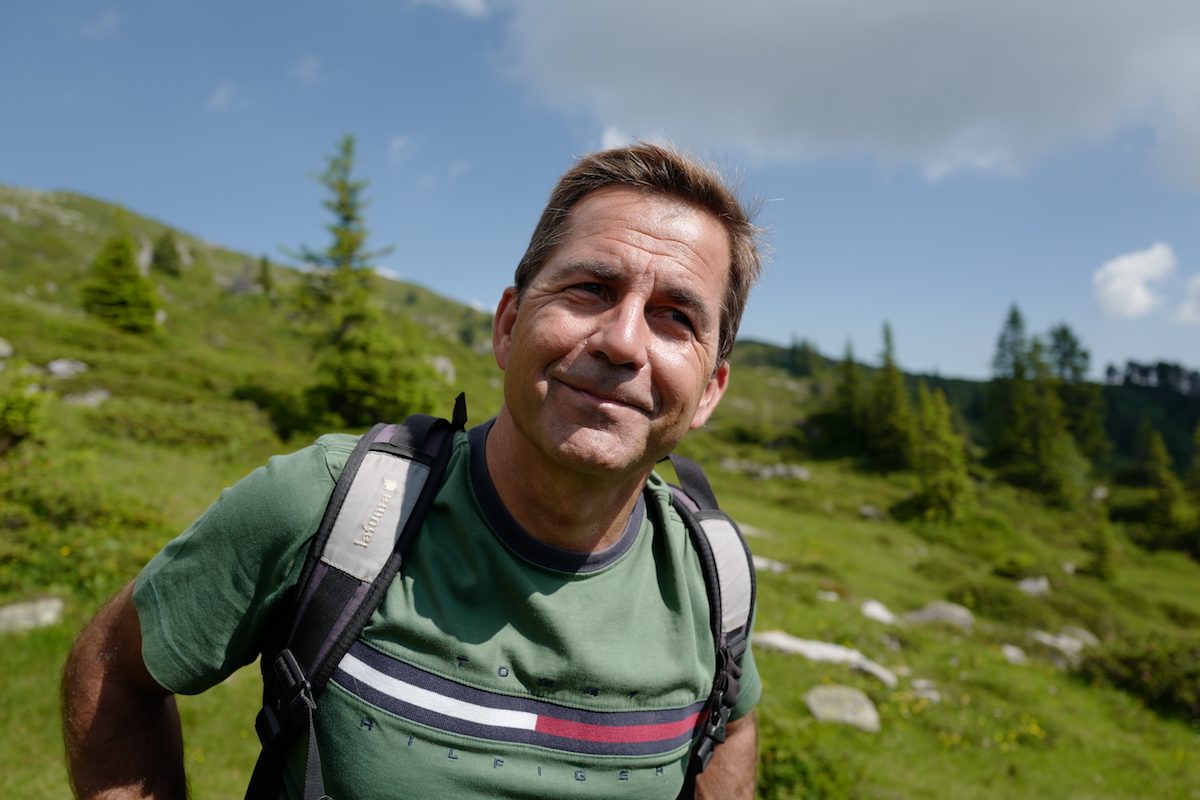
Jane
Thank you for re-sharing this interview, I feel inspired by Andrew’s passion, humility and humanity and though I never knew him, I’m happy he was here and sad he is no longer.
Anna Maier
Dear Jane, thank you so much for your feedback. Even if I only met Andrew once, I felt the same: Inspired by his soul. Best, Anna